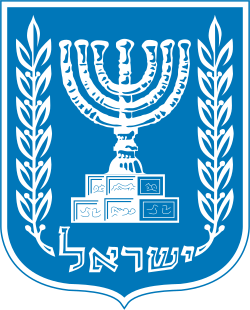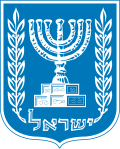History
The Ministry of Minority Affairs was founded after independence, and was the only new ministry not based on Yishuv institutions. [1] The ministerial post was held by Bechor-Shalom Sheetrit, an Arabic speaker who was popular with the country's Arab population. Sheetrit attempted to promote integration and equality, but was hamstrung by the Military Government, which controlled most Arab areas after the 1948 Arab-Israeli War, as well as Prime Minister David Ben-Gurion, who vetoed Sheetrit's proposal for an Arab advisory council in the ministry. [2]
Following disagreements with the Ministry of Religions and the Military government (which controlled most Arab areas after the war had ended), the Ministry of Minority Affairs was closed in 1949. [2] Following its closure, Arab-related matters were handled by an advisor on Arab affairs in the Prime Minister's Office. During the unity governments that lasted from 1984 until 1990, responsibility for Israeli Arab affairs was given to a Minister without Portfolio; Ezer Weizman (Yahad/Alignment), Moshe Arens (Likud) and Ehud Olmert (Likud). [3]
On 18 June 1996 Moshe Katsav, then deputy Prime Minister, was also appointed as "Minister for Israeli Arab Affairs". During the 27th government, Matan Vilnai served as Chairman of the Ministerial Committee for Arab-Israeli affairs. In the 29th government, Salah Tarif, a Druze, served as a Minister in the Prime Minister's Office with the responsibility on Minorities Affairs. In the current government Avishay Braverman, a Minister without Portfolio, was also responsible for Minorities Affairs until 17 January 2011 when he resigned.
This page is based on this
Wikipedia article Text is available under the
CC BY-SA 4.0 license; additional terms may apply.
Images, videos and audio are available under their respective licenses.

